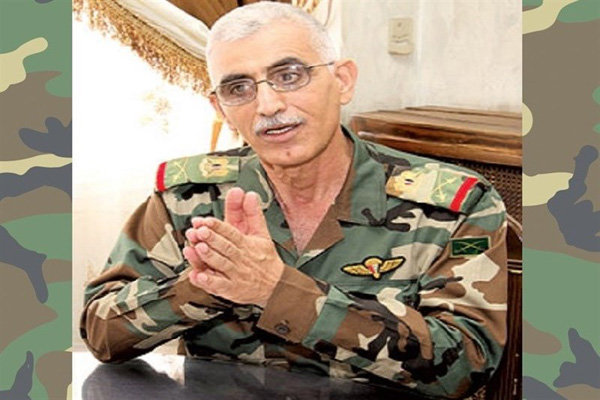Syrian general says liberation of the Golan is coming

TEHRAN - At a joint press conference in the Russian city of Sochi, Russian President Vladimir Putin and his Turkish counterpart Recep Tayyip Erdogan agreed to create a demilitarized zone in Idlib on Sep. 17, 2018.
The Turkish defense minister and intelligence chief visited Russia’s coastal city of Sochi on Nov. 20 for high-level talks with officials on Syria’s Idlib.
The Russian defense minister, Sergey Shoygu. highlighted that Moscow and Ankara needed to act swiftly to support a demilitarized zone in Idlib.
Mehr News Agency sat with Syrian military strategist and Major General (ret.) Muhammad Abbas, to discuss the extent of these developments, especially the liberation of Idlib and the Turkish program for military operations in eastern Syria.
Following is the full text of the interview:
Q: In past years, there have been Turkish military operations in Syria, they have always been condemned by Damascus. Turkey has intended to launch new military operation in the eastern bank of the Euphrates River in northern Syria. What’s your assessment of the objectives of the Turkish authorities and the reaction of the Syrian army?
A: First of all, it is important to say that, strategically, violation of Syria territory is, an American act.
The U.S. wants to change the identity of the Syrian people and make them part of Turkey's Justice and Development Party. Talking about the “New Middle East” project and Erdogan’s leadership, we find that Erdogan is key player of the American plan.
The contradictions and differences between Ankara and Washington are thus tactical conflicts. Turkey is looking out for its own interests and towards re-occupation of the Arab region.
Turkey's incursion into the eastern Euphrates area will also depend on coordinating with the U.S. to dominate the region and undermine Syria's stability. In the case of ending the Idlib operation by Syria and its allies, they will continue on to the liberation of the northeastern parts of the country, and the U.S. and its devices will not exist east of Euphrates. Because this is Arab and Syrian territory and its identity will remain Syrian. The U.S. project for the region is incomplete and we know when to begin the liberation of Idlib.
Q: Do you think the way to liberate Idlib is by diplomatic measures like the Sochi Summit or by military operations? Why have Sochi achievements in the field not been realized and when will Idlib be liberated by the Syrian army?
A: The operation to liberate Idlib province will continue. The Damascus government seeks to bring displaced people back to the area through awareness and vigilance. Similarly, national reconciliation will have been achieved with a positive approach.
On the other hand, the terrorists have kidnapped the Syrian people in Idlib and used them as human shields for their own purposes, and we should find a solution to this problem. For this reason, the Syrian government has delayed this operation so that it would take back Idlib and the citizens without war and bloodshed.
Q: When the Syrian crisis began, some Arab states stood in front of Damascus and supported the opposition and adversaries, and sometimes the terrorists, but now we are seeing that they seek a better deal with Syria. In this regard, Jordan, Egypt and the UAE have recently made positive moves. How do you evaluate their changes of position?
A: The fact is that a large number of Arab countries are struggling to reunite with Syria. But the Syrian government to welcome these actions has clear, strategic demands and stances in this regard.
This normalization of relations is in fact a declaration of failure, but on the other hand it may be seeking to achieve goals through diplomacy. The U.S. war is not over and in past years a book was published about ways to overthrow the government in Iran by Westerners, in which it was mentioned that one of its ways is to attack Syria. The domination of Syria is the prelude to the domination of Iran.
Now, the U.S. is also seeking to bring terrorists to Iran through the borders of Pakistan, Iraq and the Republic of Azerbaijan and Afghanistan. So today, when Arab countries are seeking to normalize ties with Syria, they are also seeking to influence the country through an agreement after the defeat of their military plans.
Q: In recent months, we witnessed clashes between Syria and Israel. Zionists caused Russian casualties, causing Moscow to supply Syria with S-300 surface-to-air missile systems. Since then, Zionist operations have been reduced. How will the Syrian army contain Israel's response, especially in the occupied territories, if the conflict between Tel Aviv and Damascus re-emerges?
A: Our conflict with the Zionists is a battle for identity. More recently, Bashar al-Jafari, the Syrian representative to the United Nations, told the Zionist representative that the Golan is in the hearts of the Syrians. In the past weeks, our people in the occupied Golan Heights, have also returned to protest and disagree with the holding of elections in this region indicating their emphasis on their true national identity.
Like other areas of Syria, the Golan is on the agenda of the government and the army for liberation, and I can say that today we are getting closer to the liberation of the Golan. Today, in Syria we have a strong leader, a strong army and loyal people. Strong allies who are standing next to us. Probably Syria will regain the Golan.
